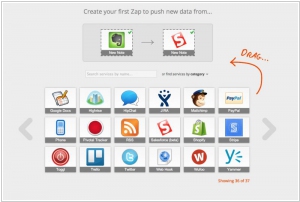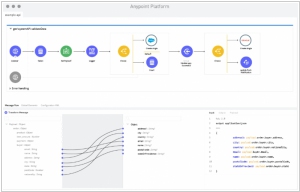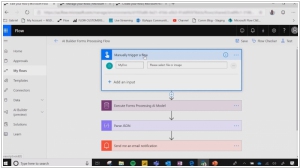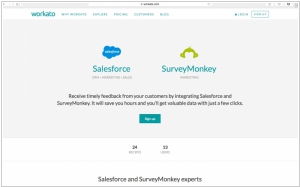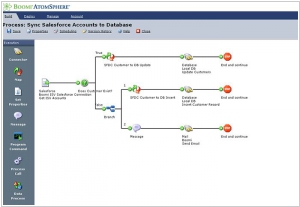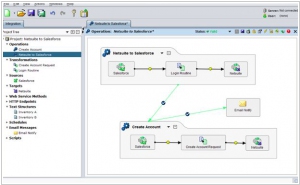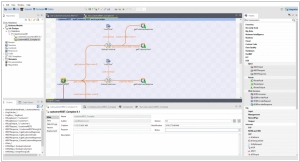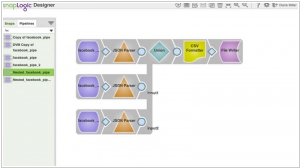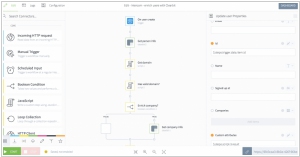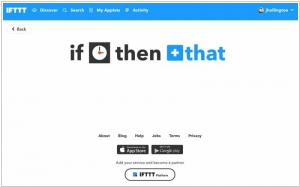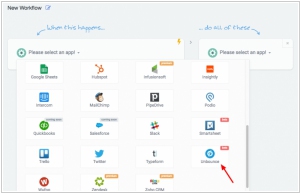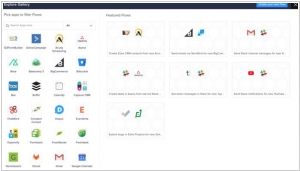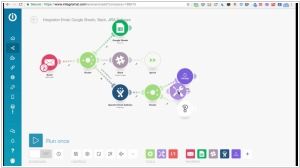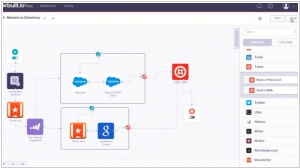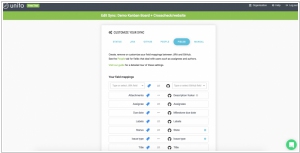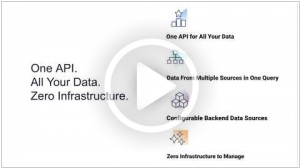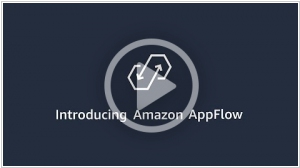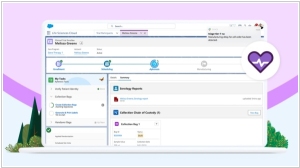Top 10 Cloud Integration platforms
February 03, 2024 | Editor: Michael Stromann
11
Cloud Integration platforms allow to integrate your data and processes accross different clouds and apps.
1
Zapier connects the web apps you use to easily move your data and automate tedious tasks. Connect the apps you use to easily move data between them. Use simple, event-based automation to avoid repetitive tasks.
2
One platform for APIs and integrations. Build an application network with secure, reusable integrations and APIs designed, built, and managed on Anypoint Platform.
3
Microsoft Power Automate (earlier Microsoft Flow) - is a versatile automation platform that integrates seamlessly with hundreds of apps and services.
4
A single platform that automates work and powers innovation across your business.
Better Integrations Through Intelligent Automation
5
Dell Boomi allows you to connect any combination of Cloud, SaaS, or On-Premise applications with no appliances, no software, and no coding. With Boomi you will achieve unprecedented implementation speeds that are just not possible with software packages, hardware appliances, or custom coding. Using only your web browser, you can sign up, log in and then build and deploy your integrations at whatever pace you require.
6
Jitterbit is the leading agile cloud integration solution for today's modern architecture, rapidly connecting any on-premise, Cloud, Social, and Mobile apps. Jitterbit is a graphical tool that allows for the transport and transformation between data types and sources, including web services, XML files, ODBC and JDBC databases, EDI files, flat and hierarchic file structures.
7
Talend offers a single suite of cloud apps for data integration and data integrity to help enterprises collect, govern, transform, and share data.
8
Social, Mobile, Analytics, Cloud Computing and The Internet of Things. If you’re feeling SMACT, it’s time to get Snapped. SnapLogic delivers a powerful, yet easy to use Elastic Integration platform for “citizen integrators” to connect all sources, sizes and types of data at cloud speed.
9
Tray.io is the most advanced integration platform for connecting the tools you use every day. Easily streamline processes using our visual workflow editor.
10
IFTTT is a service that lets you create powerful connections with one simple statement: If This Than That. Channels are the basic building blocks of IFTTT. Each Channel has its own Triggers and Actions. The this part of a Recipe is a Trigger. Some example Triggers are “I’m tagged in a photo on Facebook” or “I check in on Foursquare.” The that part of a Recipe is an Action. Some example Actions are “send me a text message” or “create a status message on Facebook.”
11
Automate.io connects all your cloud applications with amazing ease. Automate marketing, sales, payments or any business processes in minutes.
12
Automate business workflows by connecting your apps with Zoho Flow. Build smart integrations to break the information silos in your business.
13
Integromat is the most advanced online automation platform. We've redefined work automation so everyone can get back to what matters the most.
15
Unito provides detailed, two-way, live task and project syncing between tools, making your team more efficient.
Latest news about Cloud Integration platforms
2023. Zapier launches Canvas, an AI-powered flowchart tool
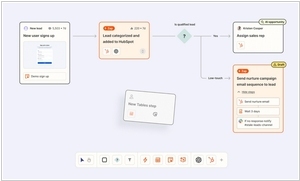
Zapier has unveiled Canvas, a innovative tool designed to assist users in planning and visualizing their crucial business processes. The tool combines intuitive visual diagramming features with AI capabilities to aid users in transforming their processes into Zapier-based automations. Canvas serves as a comprehensive platform where users can map out their processes from start to finish, and even modify the elements connected to Zapier directly within the interface. Notably, Zapier envisions expanding Canvas's functionality to allow users to edit any components, whether or not they are linked to Zapier, directly within the tool. In essence, Canvas functions as both a basic flowchart diagramming tool for process documentation and as an interface for editing the connected components. Additionally, Zapier has made Tables, its automation-focused database service, available to all users, further enhancing its automation capabilities.
2023. Digibee raises $60M to help companies integrate their software apps
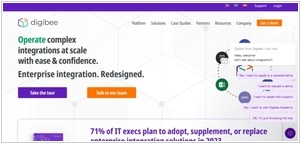
Digibee, an enterprise-focused low-code integration platform, has secured $60 million in a Series B funding round. Digibee provides a range of automated tools that enable the integration of applications, which can then be deployed across various environments. The company's cloud services facilitate the development and management of integration flows, connecting on-premises and cloud-based processes, service apps, and data within organizations. Through Digibee, customers can create integration flows, known as pipelines, by utilizing components such as enterprise apps, files, and other tools. The platform also offers modules that contain pre-packaged business logic, allowing internal teams and partners to reuse them efficiently.
2023. FlowX.ai raises $35M for its AI-based approach to application integration
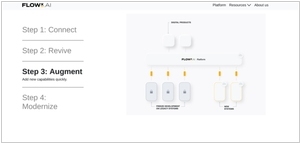
FlowX.ai, a company that enables enterprises to integrate legacy and modern software into a single platform for developing and operating applications and services, has secured $35 million in Series A funding. The company primarily focuses on serving financial sector enterprises, with notable customers such as BNP Paribas, OTP, Banca Transilvania, and Alpha Bank. FlowX.ai heavily relies on third-party entities like IBM and KPMG for system integration and engaging potential users. While the company plans to maintain its emphasis on financial clients in the near term, it intends to expand its reach gradually. FlowX.ai excels in assisting established players in the legacy space to accelerate the launch of new services, which can be utilized internally or positioned as competitors to the innovative products offered by neobanks and other emerging market players. Since the introduction of its product in 2021, FlowX.ai asserts that approximately 30 million users have engaged with products and services developed using its platform.
2022. Levity wants to give Zapier a run for its money
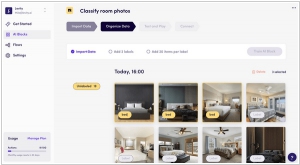
Zapier and IFTTT have emerged as prominent platforms enabling the creation of automation rules and establishing seamless communication between different applications through APIs. However, these platforms can be overly complex for handling basic tasks within businesses. Enter Levity, a new startup based in Berlin. Levity offers a solution that allows businesses to develop AI-powered, "no-Code" rules for automating tasks, even for non-technical individuals. The company has recently secured $8.3 million in funding. Leveraging simple templates, Levity empowers businesses to streamline workflows, with its underlying AI handling the intricate aspects of automation. Using Natural Language Processing (NLP) and computer vision, Levity's horizontal platform efficiently processes various unstructured data types, including images, texts, and documents. Levity serves a diverse range of customers spanning industries such as fashion, real estate, shipping, marketing, social media, scientific research, and more.
2022. Pipedream lands $20M to connect disparate apps
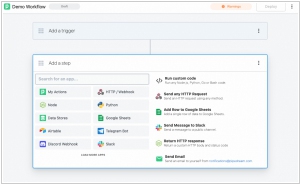
Pipedream, a funding recipient of $20 million, is an integration platform that facilitates the creation of workflows and connects various cloud services. With Pipedream, customers have the flexibility to construct workflows using open-source connectors to APIs, along with extensions coded in Node.js, Python, Go, or Bash for custom logic. Although Pipedream shares similarities with workflow automation platforms like Zapier, Integromat, Workato, and MuleSoft, it places a greater emphasis on catering to developers. The platform allows any user, customer, or partner to incorporate integrations into the closed-source segment of the platform. Meanwhile, developers have the ability to add proprietary or internal integrations that are not intended for sharing with the larger Pipedream community.
2022. Low-code integration platform Digibee raises $25M
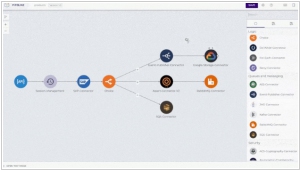
Digibee, a leading low-code integration platform, has successfully raised $25 million in its Series A funding round. Similar to other low-code integration platforms in the market, Digibee enables businesses to effortlessly develop and implement integration workflows without the need for coding expertise. However, what sets Digibee apart is its unique focus on transforming these integrations into reusable business logic, in addition to their creation. A notable aspect of Digibee's offerings is the introduction of "Capsules" - bundles of common integrations that can be shared among organizations. This feature enhances collaboration and efficiency within and across enterprises. With its comprehensive approach to integration and business logic, Digibee stands out in the low-code integration platform landscape.
2021. SnapLogic raises $165M to help enterprises integrate and automate their disparate apps and data
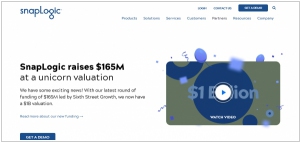
SnapLogic, a company specializing in enterprise app and data integration, has recently raised $165 million. In a competitive landscape that includes players like Workato, Tray.io, and MuleSoft, SnapLogic has established itself by assisting businesses in consolidating and utilizing data from diverse applications. This has proven to be particularly valuable for enterprises that have adopted various applications and infrastructures across multiple clouds, containers, data warehouses, and on-premise data centers over time. With a vast amount of data spread across these platforms, organizations face the challenge of effectively managing and leveraging it. SnapLogic's platform offers a solution for enterprises to seamlessly integrate their apps and data, enabling them to optimize data utilization and achieve better outcomes.
2021. Merge raises $15M for its B2B integrations platform
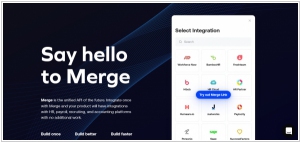
Merge, an integrations platform specializing in B2B applications, has recently secured $15 million in Series A funding. Alongside this funding announcement, Merge has also revealed strategic partnerships with HR providers BambooHR and Lever, which adds further value to its offerings. Unlike Microsoft's Power Automate and similar platforms, Merge does not position itself as a workflow automation platform seeking direct competition. Instead, the team positions Merge as a tool that assists B2B companies in constructing integrations for customer-facing purposes. Given that the average B2B company often requires integration with numerous vendors, the challenge lies in ensuring these integrations remain robust. Merge addresses this issue by providing a unified API that powers all user-facing experiences, offering a comprehensive solution for B2B companies' integration needs.
2021. Primer raises $50M for a framework designed to help merchants build more powerful payment flows
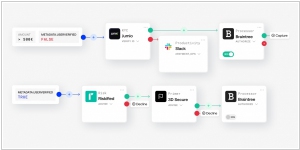
Primer, a startup that introduced a drag-and-drop framework enabling merchants to effortlessly construct payment stacks for online sales, has experienced swift adoption of its services since its launch 20 months ago. To seize further opportunities, the company has announced a Series B funding round of $50 million at a valuation of $425 million. Currently, Primer operates in over 20 countries and offers approximately 45 integrations to its merchant users, including popular payment providers like Stripe, Apple Pay, Adyen, and Braintree, as well as additional features such as fraud screening by Riskified and sales tax calculations by TaxJar. When users create a payment workflow on Primer, the platform generates separate lines of code that developers can integrate into their projects.
2021. Tyk raises $35M for its open source approach to enterprise API management
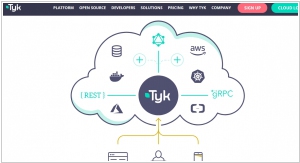
Tyk, a company that has developed a solution for users to access and control multiple internal enterprise APIs through a universal interface powered by GraphQL, has recently raised $35 million in funding. Tyk has introduced the concept of a "universal data graph" to describe its approach to API management and the associated data. Presently, its tools are being leveraged by approximately 10,000 businesses, including major enterprises like Starbucks, Societe Generale, and Domino's, to effectively manage their APIs. The developers assert that Tyk offers a higher level of flexibility compared to other available API management platforms such as Kong, Apigee (now a part of Google), 3scale (now a part of RedHat and IBM), and MuleSoft (now a part of Salesforce). This recognition highlights Tyk's value proposition and its ability to cater to the diverse needs of businesses across various industries.
2021. Codat raises $40M for its SMB-focused API service
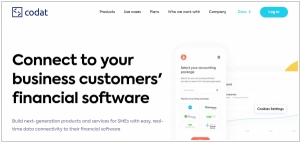
Codat, a startup specializing in providing APIs that connect small-business fintech data to external services, has successfully raised $40 million. Through its API, Codat enables the integration of corporate data from internal SMB systems such as QuickBooks and iZettle with external providers. The benefits of this service are clear and straightforward. For instance, if a small business wishes to apply for a loan, the ability to swiftly and digitally provide its financial data to potential lenders would be highly advantageous. Codat facilitates the seamless linkage of this data. The startup primarily serves financial service players and vertical SaaS companies, recognizing the significant business potential in the vertical SaaS space. This news highlights the growing attention being directed towards this particular software variety.
2021. Nylas, maker of APIs to integrate email and other productivity tools, raises $120M
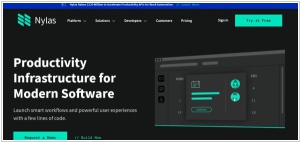
Nylas, a communications API platform, has secured $120 million in funding. Nylas specializes in facilitating automation within business applications by integrating productivity tools through a few lines of code. Like other players in the API economy, Nylas has identified a significant gap and opportunity. Many productivity tools currently operate in isolated silos, requiring users to switch to separate applications to access them while working within a specific application. Nylas aims to bridge this gap by enabling seamless integration of these tools, eliminating the need for manual switching. The process of building new tools or establishing integration with existing applications can be intricate and time-consuming, and Nylas seeks to simplify and streamline this process for developers and users alike.
2021. Merge raises $4.5M to help B2B companies build customer-facing integrations
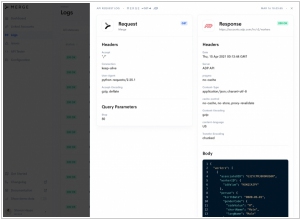
Merge, a startup dedicated to assisting users in creating customer-facing integrations with third-party tools, has successfully raised a seed round of $4.5 million. The primary objective of Merge is to provide B2B companies with a unified API that grants access to data from approximately 40 HR, payroll, recruiting, and accounting platforms, with plans for future expansion into additional domains. However, it's important to note that Merge's service does not aim to replace workflow tools like Workato or Zapier. In the event of integration issues, such as unexpected changes in the data schema within an API response (which occurs periodically), Merge's engineers are capable of resolving them within minutes. This efficiency is facilitated, in part, by the team's development of an internal no-code tool designed for constructing and managing these integrations.
2021. Zapier buys no-code-focused Makerpad
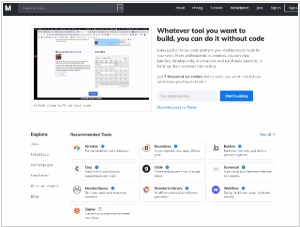
Zapier, a renowned no-code automation tool, has acquired Makerpad, an educational service and community focused on no-code development. The no-code sector, along with its related field of low-code development, has been vibrant in recent times. The low-code market has witnessed significant funding rounds, with some companies adopting low-code tools to expedite internal software development. In the no-code realm, Zapier stands as a notable success with its impressive revenue figures reaching nine digits.
2021. Blobr, the ‘no-code’ company turning APIs into products, raises €1.2M
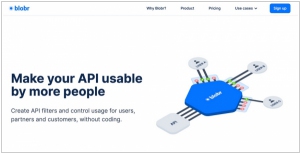
Blobr, a startup based in Paris and operating in the no-code domain, has raised €1.2 million in pre-seed funding. Blobr focuses on simplifying the process for companies to expose and monetize their existing APIs. The ultimate goal of Blobr is to become the default "business and product layer" for APIs. By doing so, it aims to empower product and business professionals to effectively manage and monetize their company's application programming interfaces, all without requiring technical expertise or overburdening internal engineering resources. By enabling easier access to commercial data and functionality, Blobr envisions a significant increase in innovative utilization of APIs, as more third parties can leverage these resources to build on top of existing platforms.
2020. StepZen snares $8M seed to build data integration API
StepZen has recently secured an $8 million seed investment for its innovative approach to building a unified API that seamlessly integrates data from multiple sources, enabling developers to enhance online customer experiences. Whether it's accessing order history on an e-commerce site or retrieving current balances from a banking app, these scenarios often involve retrieving data from disparate back-end resources. Connecting to and retrieving data from these resources can be a complex and time-consuming process, which StepZen aims to simplify for developers. By providing a streamlined solution, StepZen empowers developers to efficiently access and utilize data from various sources, ultimately enabling them to deliver more robust and sophisticated customer experiences online.
2020. Qatalog raises $15M for its SaaS tools integration workspace
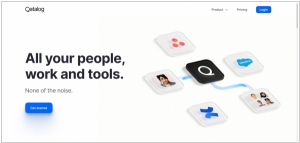
Qatalog, a startup based in London, has recently secured $15 million in Series A funding. The company has developed a unique "virtual workspace" solution that aims to enhance team collaboration and productivity by bringing together various SaaS tools. Qatalog's goal is to consolidate all the essential building blocks of the modern workplace, including popular tools like Teams/Slack, Microsoft/Google Suite, Zoom, Confluence, Jira, Notion, and Asana, among others. By seamlessly integrating with these tools, Qatalog organizes content and its relationships based on people, teams, and projects, presenting them through a unified interface. Through the creation of a comprehensive "work graph," Qatalog aims to centralize workplace information, making it more accessible, transparent, and automatable. Furthermore, Qatalog enables seamless communication and integration between different SaaS tools, allowing for efficient workflow management.
2020. Onna, the ‘knowledge integration platform’ for workplace apps, raises $27M
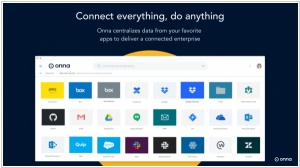
Onna, a "knowledge integration platform" (KIP) that boasts support from Dropbox and Slack, has recently raised $27 million in Series B funding. Since its establishment in 2015, Onna, headquartered in Barcelona and New York, has established integration capabilities with a wide range of workplace applications, including Slack, Dropbox, G Suite, Microsoft 365, and Salesforce. Its primary objective is to unlock the valuable knowledge stored within an organization's diverse cloud and on-premise software. A KIP such as Onna finds applications in areas such as compliance, governance, archiving, and eDiscovery. By unifying data from communication apps, cloud storage, and HR platforms, the platform aims to make this information searchable while maintaining robust security measures and preserving existing permissions and privacy.
2020. API platform Postman delivers $150M
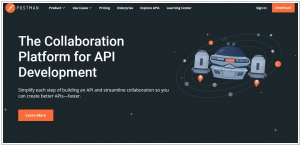
APIs offer a means to establish connections between diverse applications and data sources, effectively addressing the intricate integration challenges encountered by companies. Postman has developed an enterprise API platform, and its efforts have been recognized with a significant $150 million Series C investment. Postman empowers developers, QA teams, and DevOps professionals, essentially anyone involved in API development, by providing a unified platform. Users can leverage Postman's tools for tasks such as design, documentation, testing, and monitoring to create high-quality APIs more efficiently and expeditiously.
2020. Bryter raises $16M for a no-code platform for non-technical people to build enterprise apps

Bryter, a Berlin-based no-code platform, has recently secured $16 million in funding. The platform empowers professionals in various departments such as accounting, legal, compliance, and marketing, who may lack technical or developer skills, to build tools like chatbots, automate database and document actions, and assess risks. With a customer base of 50 enterprises, including renowned names like McDonald's, Telefónica, banks, healthcare and industrial companies, and professional services firms like PwC, KPMG, and Deloitte, Bryter's platform is utilized both internally and for client projects. While numerous "low-code" platforms exist in the market, such as Blender.io, Zapier, Tray.io, and MuleSoft (acquired by Salesforce), Bryter asserts that many of these platforms require more technical expertise than initially claimed.
2020. RapidAPI raises $25M more to expand its API marketplace
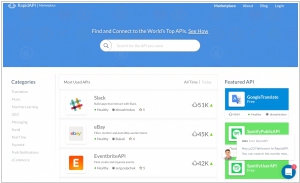
API marketplace RapidAPI has secured an additional $25 million in funding from Microsoft and other investors. RapidAPI offers a unique approach by providing a comprehensive framework that facilitates the search and seamless integration of APIs using a single API key and software development kit (SDK). It encompasses a wide range of APIs, including both free and paid options, as well as public and "private" APIs. By utilizing RapidAPI for Teams, a subscription-based product, organizations can effectively manage their own API-related tasks. This approach has proven highly successful, with over one million developers utilizing the platform and 18,000 teams actively using the Teams product.
2020. AWS launches Amazon AppFlow, its new SaaS integration service
AWS has recently launched Amazon AppFlow, an integration service designed to simplify data transfer between AWS and popular SaaS applications such as Google Analytics, Marketo, Salesforce, ServiceNow, Slack, Snowflake, and Zendesk. Similar to competing services like Microsoft Azure's Power Automate, developers can configure AppFlow to trigger data transfers based on specific events, predetermined schedules, or on-demand requests. Unlike some competitors, AWS positions AppFlow primarily as a data transfer service rather than an automation workflow tool. While the data flow can be bidirectional, AWS's emphasis is on moving data from SaaS applications to other AWS services for further analysis. To facilitate this, AppFlow includes various tools for data transformation as it passes through the service.
2020. Unito raises $10.5M to integrate workplace collaboration tools
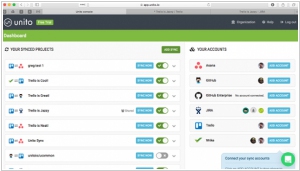
Montreal-based startup Unito has successfully concluded a Series A funding round, raising $10.5 million. Unito specializes in developing software that facilitates seamless communication between various collaboration platforms. By leveraging the APIs of leading workplace productivity software suites, Unito's tool enables actions performed in one software to be automatically translated and synchronized with others. This includes updates, comments, and due dates, ensuring that information remains consistent across all integrated apps. Consequently, employees can focus on utilizing the software that best suits their specific job requirements. Currently, Unito offers integrations with a range of popular tools such as Jira, Asana, Trello, GitHub, Basecamp, Wrike, ZenDesk, Bitbucket, GitLab, and HubSpot.
2019. Tray.io brings in $50M for its workflow automation tools
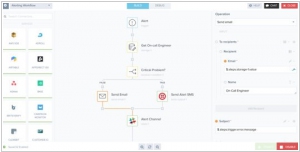
Tray.io, a company that has developed a versatile workflow automation platform, has successfully raised $50 million in funding. The platform utilizes a user-friendly graphical interface, empowering individuals to integrate APIs between multiple applications and create innovative ways of working with data across them. Tray.io initially began with a limited number of integrations, primarily focused on email-related functionalities. For instance, users could import data from Mailchimp into Slack to track email marketing campaigns. However, the company has expanded its offerings significantly and now provides integrations for approximately 400 applications. Tray.io serves a wide range of customers, from small startups to industry giants like IBM, and continues to experience growth in its user base.
2018. Workato raises $25M for its integration platform
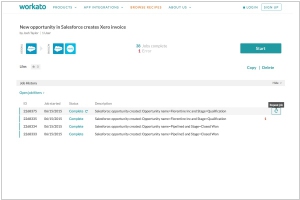
Workato, a startup that provides a platform for integration and automation in businesses, has successfully secured $25 million in Series B funding. Workato competes with renowned companies such as MuleSoft, SnapLogic, and Microsoft's Logic Apps. Major SaaS players, including Salesforce, have invested in Workato in previous funding rounds. Workato's service is similar to other integration services available (think of it as the enterprise version of IFTTT) as it facilitates the connection of disparate systems and services. Users can set up triggers to initiate specific actions, such as sending a message to Slack and creating an invoice when someone signs a contract on DocuSign. Like its competitors, Workato seamlessly integrates with various SaaS tools used by companies, whether it's Marketo and Salesforce or Slack and Twitter. Furthermore, Workato offers a user-friendly drag-and-drop interface for performing these tasks.
2018. IFTTT raised $24M from Salesforce
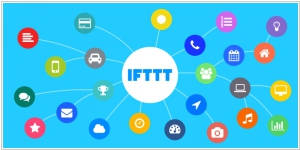
IFTTT, the cloud integration service, has secured an additional $24 million in funding to expand its operations further into domains like enterprise and IoT services. Currently, IFTTT boasts a user base of 14 million registered consumers. Notable companies such as Google, Microsoft, Amazon, Twitter, BMW, Samsung, IBM, MyQ, and Verizon have all benefited from IFTTT's scripts. Despite facing competition, IFTTT has experienced growth by focusing on niche actions between applications and devices. These actions are often created by both platform users and companies themselves, filling gaps that may not be addressed elsewhere due to companies not having direct integrations or the actions being highly specific in nature.
2018. Zoho launched app integration platform Zoho Flow
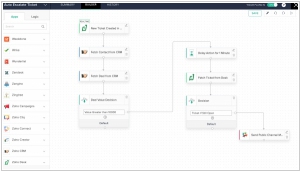
Zoho Flow is an innovative integration platform designed to seamlessly connect all of your cloud applications. With Zoho Flow, you can effortlessly create workflows, known as "Flows," that establish connections between various cloud apps without the need for coding. Whether you're transferring information between apps or executing complex business processes, Zoho Flow empowers you to automate a wide range of tasks. The process of creating a Flow is straightforward: set a trigger, add a sequence of actions, switch it on, and you're good to go! For instance, you can create a Flow that activates when a ticket is submitted to your help desk, automatically updates or adds leads in your CRM system, and sends an update to your team chat application. Zoho Flow simplifies and streamlines your app integration process, enabling enhanced productivity and efficiency.
2017. Zapier added shared folders for teams
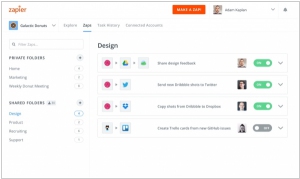
The cloud app integration service Zapier has introduced shared folders, enabling teams to collaborate and automate tasks collectively. These shared folders facilitate access to a shared collection of Zaps, allowing teammates to collaborate and construct more robust workflows. With an individual Zapier account, users can create automated workflows called Zaps that connect multiple apps. However, until now, it was not possible to share these innovative workflows with colleagues. Shared folders eliminate this limitation by enabling collaboration. Anyone with access to a shared folder can modify and enhance the Zaps within it, or even duplicate them for their own utilization. Furthermore, we have incorporated an option to share accounts for other tools, such as Dropbox, Pipedrive, and Typeform. This eliminates the need to create separate logins for each team member.
2017. Zapier launched team accounts
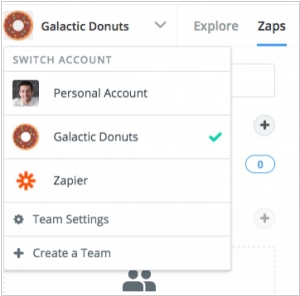
Zapier, a platform that specializes in connecting applications and automating workflows, has introduced a new offering called Zapier for Teams. This plan, priced at $250 per month, complements Zapier's existing free and $20/month tiers and incorporates several collaborative features into the service. With Zapier for Teams, businesses can now grant their employees access to Zapier while managing a single consolidated bill. The implementation of this plan also enhances security measures by allowing companies to easily add and remove user accounts as needed. Previously, under Zapier's previous pricing tiers, employees would often resort to sharing passwords, which was far from an ideal solution. With Zapier for Teams, companies can foster improved security practices and enjoy the benefits of streamlined collaboration within their organization.
2017. Oracle acquired API management tool Apiary
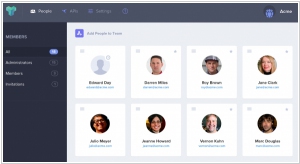
Oracle has made an undisclosed acquisition of the API management startup Apiary. Apiary specializes in assisting companies with the management of APIs, a task that has grown significantly in importance. As businesses across various sectors transform into software companies, they are developing platforms and offering means for customers and third parties to build applications using their technologies. Cloud companies are increasingly focusing on helping customers navigate the complexities of APIs. Through the acquisition of Apiary, Oracle will offer customers advanced capabilities for designing and governing APIs. This enables companies to effectively manage the entire lifecycle of their APIs and seamlessly deliver integrated applications.

